|
What's different about fiction editing, and is it for you? This post explores emotional responsiveness, mindfulness and artistry.
To keep things tidy, I'm talking in the main about line editing and copyediting because I specialize in sentence-level work, but some of the key principles will apply to developmental fiction editing too.
Why fiction editing is a different kind of artistry Have you ever tried something for the first time and found it difficult? Did someone review your initial effort? Did they outline problems before celebrating your achievement? If so, how did you feel? I suspect most of us have encountered this scenario at some time or other. I have, and it feels just awful. A review of anything that focuses only on the negatives – however kindly those negatives are offered – is a poor review. It matters not whether you’re an editor, a business executive, a marketer, or a parent; if you can’t find a single good thing to celebrate in the work in front of your nose, then you’ve not done the job properly. When editing fiction, the ability to celebrate first is critical – more so, I think, than with non-fiction. Note that by non-fiction I’m referring to academic, technical and journalistic works, not narrative non-fiction (sometimes called creative or literary non-fiction) such as memoir or biography, where I think the editing challenges are similar to the fiction specialist’s. In a nutshell, editing criminology requires a different touch to editing crime fiction.
It’s personal
Every writer’s book is their baby, and most writers will infuse their tomes with their own experiences. But when those experiences concern matters of love, grief, sex or despair, the process of writing – and of being edited – takes on a whole new level of intimacy. I’ve lost count of the number of authors who’ve told me they felt physically sick at the thought of contacting an editor, never mind emailing me the file. Many feel vulnerable, exposed, embarrassed. And why wouldn’t they? Imagine handing over hundreds, even thousands of pounds to a stranger to look at an image of you and suggest how to make it better – not just any image, mind. You’re naked in this one. For many, that’s what it feels like to be edited. And so the fiction editor is charged with a responsibility. And it’s huge.
Best versus best fit
Put 10 fiction editors in a room and ask them to work on the same 2,000 words. You’ll likely come back with 10 very different samples. That’s because fiction editing is subjective. It’s not that the rules of grammar, spelling and punctuation don’t apply. It’s not even that they apply less rigidly. It’s rather that they apply differently. Just a single change to a punctuation mark can affect tension, pace, mood. One of my regular authors has a mantra: ‘Louise, as always, keep it lean and mean.’ He’s a crime writer. It’s high-octane stuff. Low on adverbs. Low on conjunctions. Short, choppy sentences. The protagonist looks over his shoulder a lot. And if the punctuation is sympathetic, the reader looks with him. Compare this with another recent project. It’s essentially a love story – a woman’s search for her exiled family. The tale is one of heartbreak, abandonment, reconciliation and redemption. The author’s style is more fluid, prosaic. The protagonist isn’t looking over her shoulder but searching her soul. Every change needs to reflect this. How I go about reflecting these authors’ intentions will not necessarily be the same as one of my colleagues. It’s not that one of us is better at editing than the other. Rather, it’s how we interpret those intentions – and seek to mimic them – that’s different. We’re not talking about who’s the best, but who’s the best fit. That’s something the author must decide. And it’s tricky. How does a writer search for best fit on Google, or in an editorial directory, or on social media? How do they find that elusive emotional responsiveness to their writing?
Gauging emotional responsiveness – the sample edit
Fiction editors don’t have a monopoly on sample edits, but there is, I believe, an added dimension here in which samples really come into their own. Physically working on a piece of text helps every editor get a sense of the writing style, where the problems are and whether they’re capable of solving them, how long the job will take and how it should be priced. For the fiction editor, there’s something else, though – the feel of it. It’s our first opportunity to find out whether we can get under the skin of the author. And if we can’t, it might mean walking away. If we can’t respond emotionally to the author’s intentions – feel our way through the words and into the characters and the world they inhabit – the edit could be impaired. You can’t mimic an author seamlessly if you’re unmoved by what you’re reading. There’s a lot of talk about authorial voice in the editing world. In fiction editing, the concept can be a tad limiting.
A sample edit has its limitations, of course, by virtue of size. But it gives the author and the editor a glimpse of whether that emotional responsiveness is present and how it’ll be managed on the page such that the fit feels right. Ultimately, fiction editing is as much about the heart as the head.
The mindful rules of fiction editing
Once the author and editor have found each other, the mindful rules of fiction editing will come into play ... during the edit, and in the post-edit summary or report. Here are mine:
Fiction is a specialism
Fiction editing isn’t for everyone. If you’re keen to specialize in this kind of work, ask yourself where you lie on the empathy scale. Many specialist fiction editors I know describe themselves as being a little on the oversensitive side. Terms such as introspective or contemplative are never far away. I cry at some adverts, so it’s no surprise to me that I ended up in this line of work! This emotionality can serve the fiction editor well, but it’s not something that can be learned on a training course. That’s not to say that specialist fiction editorial training isn’t worth doing – far from it. But mindfulness is your friend, too – don’t be afraid to embrace it in your editorial practice!
Louise Harnby is a line editor, copyeditor and proofreader who specializes in working with crime, mystery, suspense and thriller writers.
She is an Advanced Professional Member of the Chartered Institute of Editing and Proofreading (CIEP), a member of ACES, a Partner Member of The Alliance of Independent Authors (ALLi), and co-hosts The Editing Podcast. Visit her business website at Louise Harnby | Fiction Editor & Proofreader, say hello on Twitter at @LouiseHarnby, connect via Facebook and LinkedIn, and check out her books and courses.
19 Comments
28/8/2017 01:21:47 pm
Good article, Louise! And true indeed. Editing fiction is an art. You must be very attuned to the story and to the writer. This is crucial. As a fiction editor myself, I find that more than half of my job is to be sensitive to what the writer wants and needs and what the story wants and needs and to bring those two things together.
Reply
Louise Harnby
28/10/2017 04:47:19 pm
Absolutely, Julie! Without emotional responsiveness we are at terrible risk of disrespecting the author's intentions and damaging what they've created.
Reply
29/8/2017 01:16:03 am
As a fiction editor, I completely agree with the content of this post, especially I haven't seen anyone else hit it quite so on target. Thanks!
Reply
Louise Harnby
28/10/2017 04:49:24 pm
Thank you, Carolyn! I always enjoy your excellent posts on An American Editor!
Reply
29/8/2017 05:17:53 pm
I enjoyed reading this post, Louise. And yes, I got here via your Facebook intro video. :)
Reply
Louise Harnby
28/10/2017 04:58:06 pm
Hi, Robert! Glad to hear that you enjoyed the video as well as the words! It's something I'm adding into the mix, though with some trepidation!
Reply
29/8/2017 09:14:21 pm
I've never seen the distiction discussed this way before! How true & insightful. It really is such a subjective sport - finding the right fit as an author and being empathetic as an editor really is the key to a successful relationship that will benefit the books that are the result of that connection. Wonderful article!
Reply
Louise Harnby
28/10/2017 04:59:16 pm
Thank you so much, Sara. Glad it chimed with you!
Reply
30/8/2017 12:30:15 am
Louise, your piece on fiction editing brought back a flood of good memories. Jenny Hewitt (pen name Jacqui Bennett - now passed on) was such an editor as you describe; an eagle eye, a hard nose, but a soft heart. She edited all four of my novels and I always waited with a quickening pulse for the incoming mail and her editing comments, as if waiting for a reply to a love letter. She never failed me. She was exactly as you describe the perfect fiction editor should be.
Reply
Louise Harnby
28/10/2017 05:05:40 pm
Hi, Jerry! I'm so sorry it took so long to respond to this. Your comment, like the others, got trapped in a hidden Pending folder on the back end of my website, and I've only today fixed the problem.
Reply
1/9/2017 10:52:54 pm
Louise, I do so enjoy how carefully you've written about being mindful. Your thoughtfulness shines through. And your perspicacious view is educational and reassuring to this editor. Thanks, as always.
Reply
Louise Harnby
28/10/2017 05:07:43 pm
Thank you, Kate! You're very thoughtful yourself to say so! I wish the Pending folder in Weebly had been as mindful and not caused a delay in your comment being published. Apologies!
Reply
7/9/2017 04:09:13 pm
This is a very timely and reassuring post for me. I currently have a novel going through development editing and, as you say, I'm feeling very exposed as I wait for Sophie's report (even after an interim message in which she told me that overall it is a great read). I know she is a personal friend of yours so I'm sure you'll agree that Sophie Playle is a superb editor. She edited a short story for me several months ago, and her report was exactly as you have described here: celebration at both ends with astute problem solving in between.
Reply
Louise Harnby
28/10/2017 05:13:19 pm
Hi, Anthony! Another lovely author comment, and how wonderful that your in the hands of my friend and colleague, Sophie! She is a wonderful editor. I've even used her for my own non-fiction work and she was brilliant. And she's a fine example of someone who never fails to bring emotional responsiveness to the editing studio (or the dinner table for that matter when we meet up!).
Reply
Louise Harnby
28/10/2017 05:18:24 pm
I'd like to offer my apologies to all of you who took the time to comment on this post. I loved writing it and am thrilled that it touched people. However, I'm hugely embarrassed that the comments ended up jammed in a Pending folder in the back end of my website. I only discovered (and fixed) the problem today.
Reply
5/8/2018 05:46:55 pm
Excellent article, Louise. It articulates a lot of what I've instinctively known works, but never really thought through. And I love the formula for the written report!
Reply
Louise Harnby
5/8/2018 09:05:59 pm
Thanks so much, Brian. Glad you enjoyed it. I really enjoyed thinking about and writing it!
Reply
2/10/2018 02:48:55 pm
Touché! The longer I've been editing and working on fiction MSs, the more respect I have for writers: not just the writing but also the skin they have in the game. I'm one of those "oversensitive" ones too, and I think prospective clients sense that in sample edits. How you treat clients is a reflection of how you treat people, and I think authors can read this loud and clear. Respect, as you discuss, is essential.
Reply
Louise Harnby
3/10/2018 10:00:32 am
Brava, Vanessa. Immersion rules!
Reply
Your comment will be posted after it is approved.
Leave a Reply. |
BLOG ALERTSIf you'd like me to email you when a new blog post is available, sign up for blog alerts!
TESTIMONIALSDare Rogers'Louise uses her expertise to hone a story until it's razor sharp, while still allowing the author’s voice to remain dominant.'Jeff Carson'I wholeheartedly recommend her services ... Just don’t hire her when I need her.'J B Turner'Sincere thanks for a beautiful and elegant piece of work. First class.'Ayshe Gemedzhy'What makes her stand out and shine is her ability to immerse herself in your story.'Salt Publishing'A million thanks – your mark-up is perfect, as always.'CATEGORIES
All
ARCHIVES
July 2024
|
|
|
|


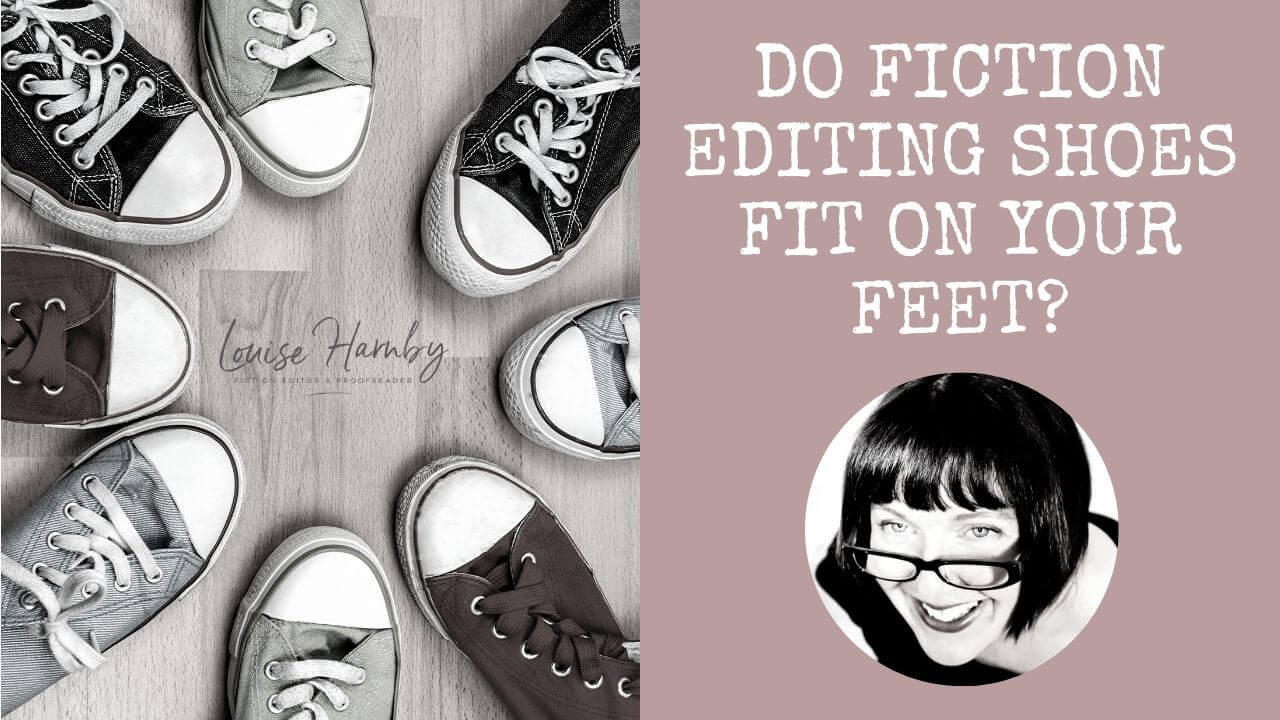
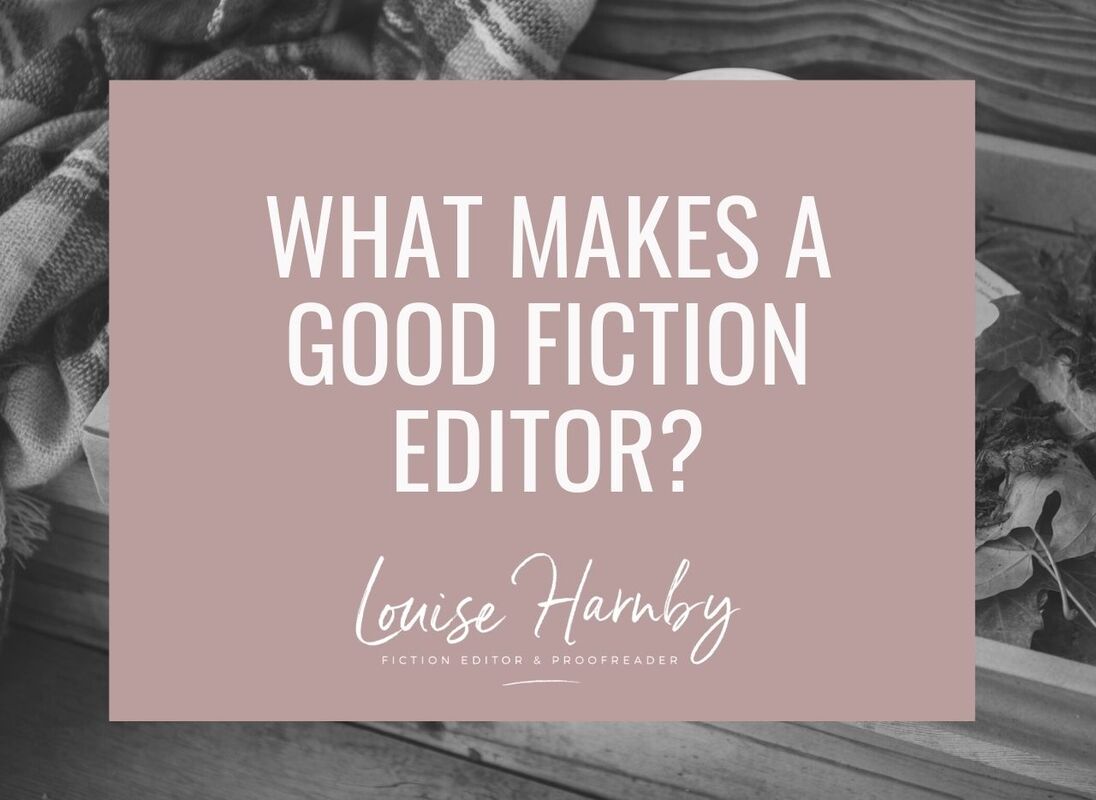
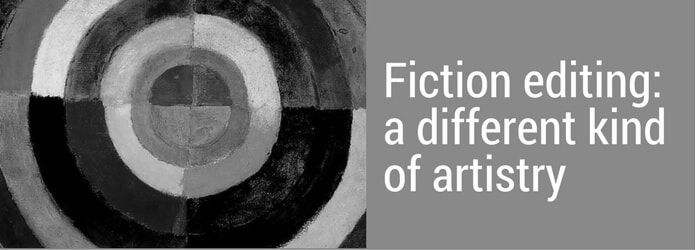
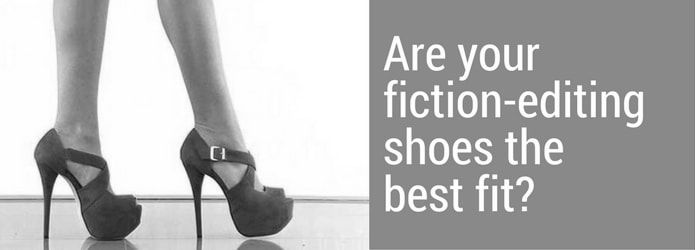
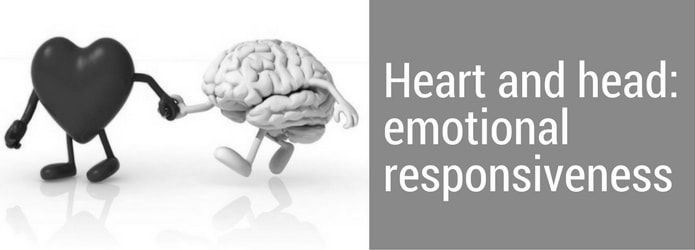
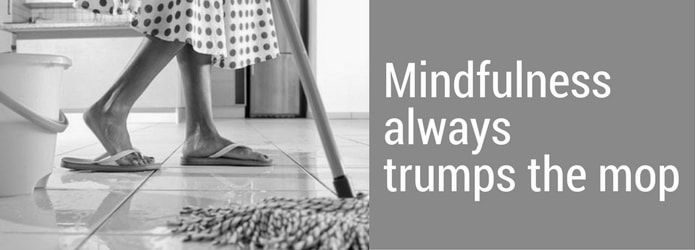
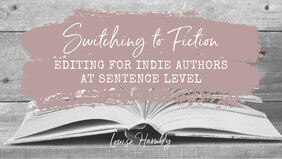













 RSS Feed
RSS Feed





